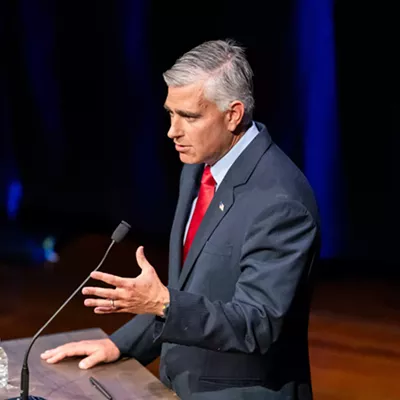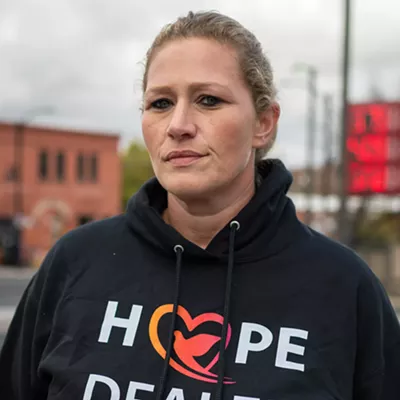After auctioning its first set of carbon emission "allowances," Washington is now the second state in the country to open a "cap-and-invest" market to get companies to pollute less and decrease their contribution to climate change.
The market is part of the state's effort to reduce emissions by 95 percent from 1990 levels by 2050. Companies that emit more than 25,000 metric tons of greenhouse gases per year need to buy allowances to cover their emissions.
State lawmakers will invest the auction money — estimated at more than $1.7 billion every two years — in projects to decarbonize the transportation and building sectors, and improve health and air quality in communities that are most impacted by pollution and climate change.
"We are at the beginning of this real transition, and it's pretty exciting," says Kelly Hall, Washington director of the nonprofit Climate Solutions. "My hope is that the revenues ... can be spent really well to make sure that energy is available for folks so we don't have to depend on the oil industry."
As the Feb. 28 auction results are finalized this month, Washington lawmakers can start funding projects in the biennial budget this session. At least 35 percent of the auction money must be invested in overburdened communities, and at least 10 percent must go to projects for tribes.
That could include assistance to buy electric appliances, weatherize homes and businesses, and better track air quality, Hall says.
Other investments could build electric vehicle charging stations and help trucking companies switch their fleets to lower-carbon options such as hydrogen fuel or electric for shorter hauls.
COST AND INVESTMENT
Polluting companies are encouraged to reduce their emissions in a few ways.
First, the state Ecology Department caps the number of allowances in each auction, which will happen every three months. Over time fewer allowances will be auctioned, which could drive up the price and force those who don't "win" allowances to reduce their emissions another way. Second, companies that cut pollution won't have to buy as many allowances.
Unlike California, Washington's program also restricts how much companies can comply through "offsets" by investing in things like clean energy projects. If an offset is used, Ecology removes an allowance from the bidding pool. Since companies need allowances or offsets for all their emissions, the cost will continue to go up for those who don't change.
The companies that reduce their impact faster than expected can sell extra allowances on a secondary market. Those that don't comply can be fined up to $50,000 per day.
Ecology uses an algorithm to allocate allowances, with the lowest successful bid setting the final price, explains Claire Boyte-White, Ecology's policy adviser for the program.
"The bid that wins that last allowance, which by definition is the lowest bid, sets the price every successful bidder pays," she says. "Everybody below that lowest point are what we call unsuccessful bids."
This prevents companies or investment firms from working together to manipulate prices, says Luke Martland, who oversees the program for Ecology.
Martland says the "big boys [can't] come in with lots of money and bid a crazy price that other covered entities can't meet."
Each allowance covers 1 metric ton, and the first auction's bidding ended at $48.50 per allowance, with about 6.2 million allowances sold.
While major oil company BP supports the program, those opposed include others in the fuel industry, with the Western States Petroleum Association claiming it "will deliver marginal environmental benefits while hurting the state's consumers and economy."
But many are skeptical about high-profiting companies' claims that the cost must be passed to consumers through things like higher gas prices.
Ecology is aware that some fuel distributors preemptively increased prices ahead of the auction, with some labeling a surcharge on bills and even charging agricultural and maritime customers who are exempt from the program, Boyte-White says.
"We're not talking about the guy who runs your gas station or the farmer that owns a seed store and sells propane. [The program] covers large fuel suppliers who have the profit margins to make all kinds of decisions," Boyte-White says. "The revenue generated by those line items just goes to the fuel suppliers."
Martland says Ecology has educated some suppliers who will stop the surcharges and agreed to give rebates to exempt customers who overpaid. ♦


























